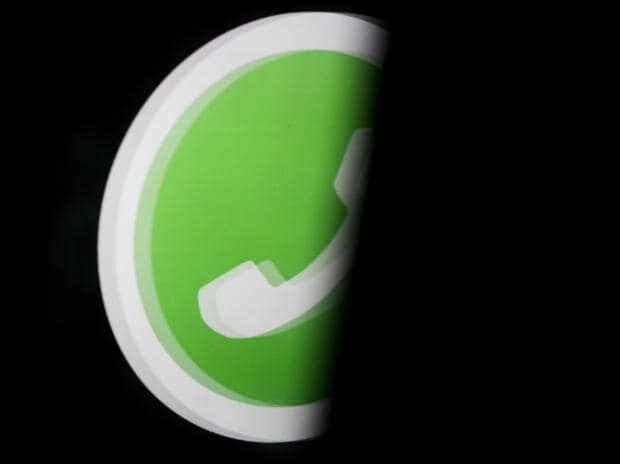George Saunders’s literary journey has taken an unexpected turn. Known for his distinctive blend of absurdity and sublime weirdness, the American author finds himself in the midst of a legal battle. Alongside fellow authors, Saunders has filed a lawsuit against OpenAI, alleging the unlawful use of their works in training ChatGPT, the company’s chatbot.
A recipient of the 2017 Man Booker Prize for “Lincoln in the Bardo,” his only novel, Saunders has authored nine books. His mastery lies in the realm of contemporary short stories, and his contemplative exploration of the craft of fiction led to the creation of “A Swim in a Pond in the Rain,” a series of essays delving into the intricacies of storytelling.
In “Liberation Day,” a collection of short stories published in 2023, nearly a decade after his last, Saunders explores the underlying humanity of his characters and the climate of inhumanity surrounding them. It’s a theme that runs through the book – from the first story, where a character is pinioned to a wall for the entertainment of his masters, to the last, where a man gets obsessed with a house, The stories grapple with themes of political unrest, economic inequality, and the meaning of life.
In December 2021, Saunders started writing a newsletter on Substack through which he prompts his subscribers to read, ponder upon and, ultimately, learn the craft of fiction writing.
For this interview, conducted via email, Saunders steers clear of speaking about his lawsuit against OpenAI since the matter sub-judice. He shares his thoughts on the essence of morality in his writing, his Substack journey and the pressing question of what literature ensues when the creation of it is in question. Edited excerpts:
It has been almost three decades since your writing career began. How has the writing and publishing industry changed over these years?
The main thing is the decentralisation that has happened because of the internet and social media. This has had the effect of exaggerating a “feast or famine” atmosphere – a few books getting all the attention and publishers less willing to stick with a writer as she finds her audience.
While there’s palpable concern for authors whose work has been fed, without due credit or compensation, to AI models to train them, there’s also an affable attitude towards AI that, as a generator of literature, it won’t do much harm to writers because we won’t just read anything. Why do we read what we do as literature?
When I open a book of fiction, I want to feel the mind of a particular human being reflecting on what it means to be alive.
I want to see the world through, say, the eyes of Alice Munro, a particular person with specific experiences. Her job is to work with those experiences, through craft, until her particular truths speak to me, a person with a different mind and experiences.
AI can’t do that, by definition – it can serve up a good imitation of other people who have done it, but until AI can walk down a dusty street, feeling a certain way because of the overhanging trees, and then realise it’s late for a job interview and show up with dust on its pants, and slightly out-of-breath – I’m not sure what it can teach me.
The issue, though, is this: can we continue to be good enough readers to recognise the difference? To feel that human spark and, also, to feel its absence, in a piece of writing. My fear is that reading too much AI-generated work will dull our sensors.
Your 2003 short story “Jon”, published in the New Yorker, is set in an advertising agency where kids are made to test the products for marketability, so much so that Jon starts to express himself in the advertising language. “My House”, in your 2022 collection “Liberation Day”, shows us a homebuyer who gets obsessed with a particular house. Your critique of modern consumerism, where human emotion is so tied to the perceptions of mass consumer goods and independent thinking is scarce, is a recurring theme in your writing. Why is it so, and has Jon come closer to the reality in which we are living?
I think “Jon” is almost quaint, compared to what’s happening now – especially as regards the algorithms that are all but running our public life.
I grew up fairly working-class and so, having a job and going to it and getting ready for the next day were as natural as breathing. My work took a big step forward when I realised that my fiction should (must) reflect this; that what we do with 8-12 hours of our day…. well, that is life. If literature is supposed to be about the experience of living, then it ought to have work in it.
These days, the type of work we do (and its effects on us) are all tied in with the rise and dominance of corporations, which, just by the way they are designed, treat the individual’s grace and feelings and health as side-issues, instead of as the main issues. So, I’m happy that these ideas are in my work – it would be surprising, given the life I’ve led, if they weren’t.
Morality and ethical considerations seem to play a significant role in your works. How do you navigate the fine line between moral exploration and storytelling, and do you believe literature has a responsibility to address moral questions?
I think any story that interests us has a moral component. We recognise that Little Red Riding Hood is “good” (although slightly naïve/arrogant) and the wolf is “bad.” I don’t think fiction exists to proselytise, but, rather, to open a moral issue up, to move us past our initial simplistic understanding to a higher place, and this may even be a place from which action is more difficult, rather than less. The effect can sometimes be, “Ah, yes, wow, life is difficult and complicated… and lovely.”
Your works delve into universal themes, but they also carry a sense of cultural resonance. In your recent works, such as “Lincoln in the Bardo” and “Liberation Day”, how do you incorporate cultural elements, and do you think your writing resonates differently with readers from diverse cultural backgrounds, including India?
I always assume that, at heart, we’re interested in the same things: how to be more loving, how to deal with the fact that life ends, and so on. The cultural trappings, I see as a sort of necessary ornamentation.
A story can’t really work without specificity. But, just as is the case when I read a wonderful Indian writer, I assume that an Indian reader can sort of “factor in” the cultural variations and read past them to the heart of the matter, the common human experience.
In “Lincoln…”, for example, it might appear to be about a particular president at a particular time in American history (and it is), but I think a good reader will quickly intuit that it is actually about how we human beings, all of us, struggle to keep our heads above water in the face of grief and loss. At least I hope that’s how it works.
You started ‘Story Club with George Saunders’ on Substack in December 2021 and have garnered more than 120,000 subscribers on it. What prompted you to opt for Substack, and how has it helped you engage with readers?
Substack offered me a one-year salary to try it, and I loved it and have happily stuck with it – we’ve made a large, healthy, positive community, dedicated to reading (and reading better). Mostly we’re analysing published work and, selfishly, this keeps me sharp – I’m reading more stories and thinking more deeply about how they get made. Especially these days, when so much of our public communication is agenda-driven and tends toward the performative and snarky, it feels important to remind ourselves of the value of nuance and ambiguity and close reading – these are all forms of loving, alert communication, that is, human communication.
Note:- (Not all news on the site expresses the point of view of the site, but we transmit this news automatically and translate it through programmatic technology on the site and not from a human editor. The content is auto-generated from a syndicated feed.))



